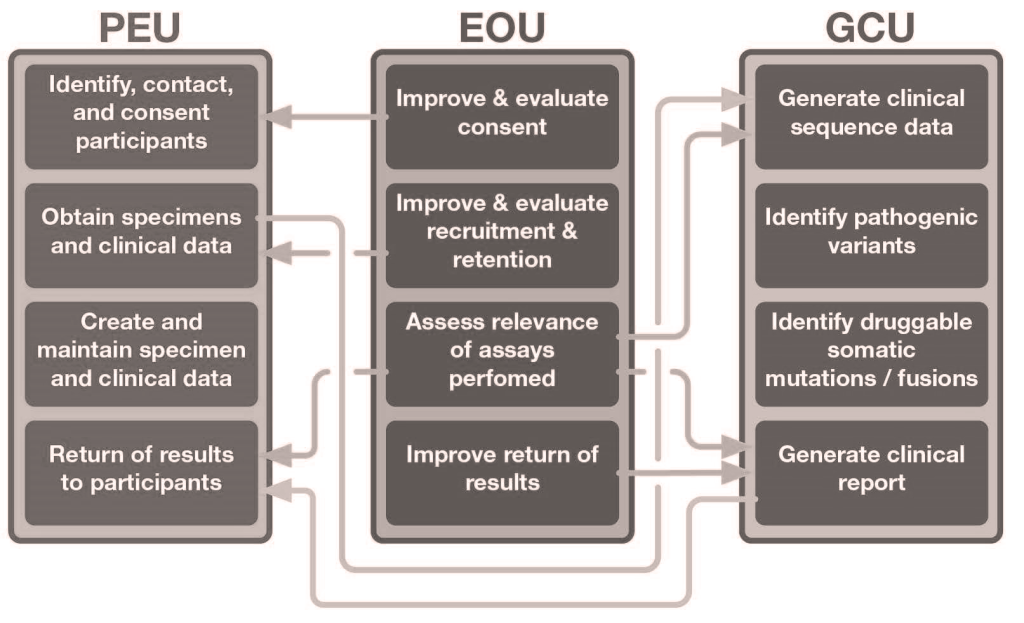Overview of the WU-PE-CGS
The Washington University Participant Engagement and Cancer Genomic Sequencing Center (WU-PE-CGS) fills critical gaps in knowledge, methodology, and characterization of understudied cancer populations, leading to optimal approaches to participant engagement, outreach, and communication in genomic characterization studies.
Our focus is on rare and/or understudied cancers:
- Cholangiocarcinoma
- Colorectal cancer in Black Americans age 65 and under
- Multiple myeloma in Black Americans
The WU-PE-CGS builds on a long and outstanding record of leadership in both healthcare access and genomic research across the cancer continuum. We are particularly innovative and allow for a significant return on the scientific investment in several ways.
- First, our Center has distinctive features that include a combined focus on healthcare access, the application of strategies to increase participant engagement in research, success in biospecimen acquisition, and exceptional genomic sequencing expertise.
- Second, we have assembled a diverse, world class team with strong linkages to multiple rare and understudied cancers.
- Third, we engage investigators from different disciplines and invest in the development of early career scholars.
- Fourth, we strategically and creatively disseminate products in ways that benefit researchers, practitioners, and community members.
- Fifth, we partner with exceptional patient-centered and wide-reaching advocacy groups to engage patients, optimize recruitment, and seamlessly return results. Input from these groups, patients, and their families is a key strength that leverages our track record of stakeholder engaged research.
- And finally, we have developed a focused strategy for collective integration of our units.
These synergies allow our Center to become a national resource for optimal approaches to participant engagement, outreach, and communication in genomic characterization studies as technologies advance that accelerate progress for the scientific community, patients and their communities.
Research Units

Participant Engagement Unit (PEU): The PEU is responsible for direct participant engagement and enrollment of patients into the WU-PE-CGS program. The PEU also interacts with EOU to evaluate and refine the overall engagement process in light of best practices and compliance with evolving policies governing return-of-results.
Engagement Optimization Unit (EOU): The mission of the EOU is to conduct rigorous behavioral research utilizing an implementation science framework to evaluate and improve the consent, recruitment, data collection, and return of results. Following recent best practices on how to develop and measure implementation strategies, the EOU integrates with the PEU and GCU to optimize participant experiences throughout the genomic research process.
Genome Characterization Unit (GCU): The GCU receives samples from the PEU as procured from patients of each cancer type. The GCU analyzes and interprets all results, returns results to PEU for communication with participants and stakeholders according to participant-specific preferences, and securely uploads these data to the NCI Genomic Data Commons.
Related publications
Schuster et al. Priorities to Promote Participant Engagement in the Participant Engagement and Cancer Genome Sequencing (PE-CGS) Network. Cancer Epidemiol Biomarkers Prev. 2023 Apr 3; 32(4): 487–495.
X/Twitter: @WashU_PECGS
Division: Public Health Sciences
Email: pecgs@wustl.edu
Phone: 314-273-2434